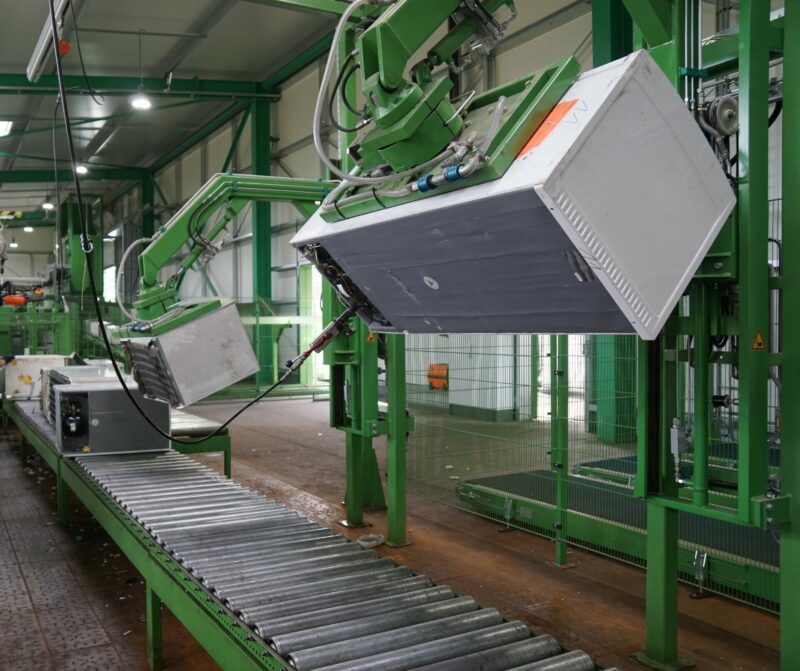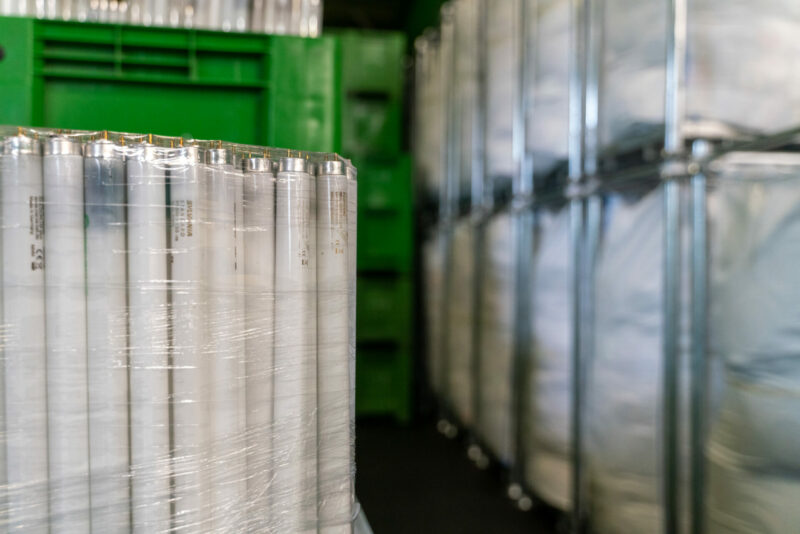Reverse production of refrigerators
The reverse production of refrigerators refers to the quality and safe dismantling of the recyclable materials contained in refrigerators.
The recyclable materials recovered from old refrigerators are used to make new, high-quality products. Components such as glass panels, plastic and metal parts, refrigerants, compressors and cables are separated and processed in special processes so that they can be used as new raw materials or destroyed in an environmentally friendly way.
Polyurethane foams, from which refrigerants and blowing agents are removed during reverse production, are used, among other things, to produce ÖKO-PUR, the only oil and chemical binder with a climate-protection effect. Almost 0.6 kg of copper can be recovered from an average 45 kg refrigerator. In addition, approximately 1 kg of aluminum is recovered during reverse production.
The reverse production of refrigerators produces high-quality, sustainable, CO2-reducing post-consumer ECO regranulates that can be used to make mechanical functional parts, electrical accessories, household appliances or plumbing fixtures.

Reverse production of fluorescent tubes
Non-hazardous lamps are shredded to recover metals and glass. Mercury-containing lamps are processed in a closed facility so that all components, including mercury, can be separated. Mercury from mercury-containing products is recovered by distillation. LED lamps are treated and recycled in the same way as electronic devices.

